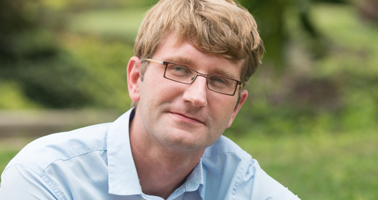Past Event: Oden Institute Seminar
Hagen Hofmann, Department of Chemical and Structural Biology, Weizmann Institute of Science, Israel
3:30 – 5PM
Thursday Apr 14, 2022
POB 6.304 & Zoom
The dynamics of folded proteins include concerted motions of thousands of atoms, thus clearly exceeding the capabilities of analytical theories. On the other hand, intrinsically disordered proteins (IDPs) are well described by analytic polymer models of different flavors. Yet, these models are not applicable if disorder and order mix, e.g., for IDPs that form partially ordered complexes or for disordered linkers that connect folded domains. Using multi-parameter single-molecule FRET, we therefore monitored the dynamics in two partially disordered systems, the E-cadherin/b-catenin complex and the enzyme QSOX, at timescales from nanoseconds to milliseconds. We found that many weak interactions cause rugged energy landscapes that slow-down dynamics by orders of magnitude compared to classical IDPs. While the dynamics of the disordered complex are characterized by a single timescale, the dynamics of the enzyme follow power laws due to a mixing of different timescales. I will discuss the potential biological function of the slow dynamics for both molecular systems.
Hagen received his PhD from the Martin Luther University Halle-Wittenberg. Afterwards, he went to the University of Zurich to work as a postdoctoral fellow in the group of Benjamin Schuler. Since 2014, Hagen is an Assistant Professor at the Weizmann Institute of Science. Dr. Hofmann uses microfluidic devices which can isolate single cells for observation under powerful microscopes, and single-molecule fluorescence spectroscopy to zoom in on specific molecules within single living cells to identify the action of individual molecules in a living cell. In his new lab, he will explore what happens, step by step, in vital processes such as the transcription of genes, and the production and folding of proteins. His efforts will combine tools and theories from molecular biophysics and systems biology, drawing on both theorists and experimentalists in biology and physics. His academic and professional awards include scholarships from the German National Academic Foundation and a Max-Buchner Research Grant from the DECHEMA (Society for Chemical Engineering and Biotechnology).
